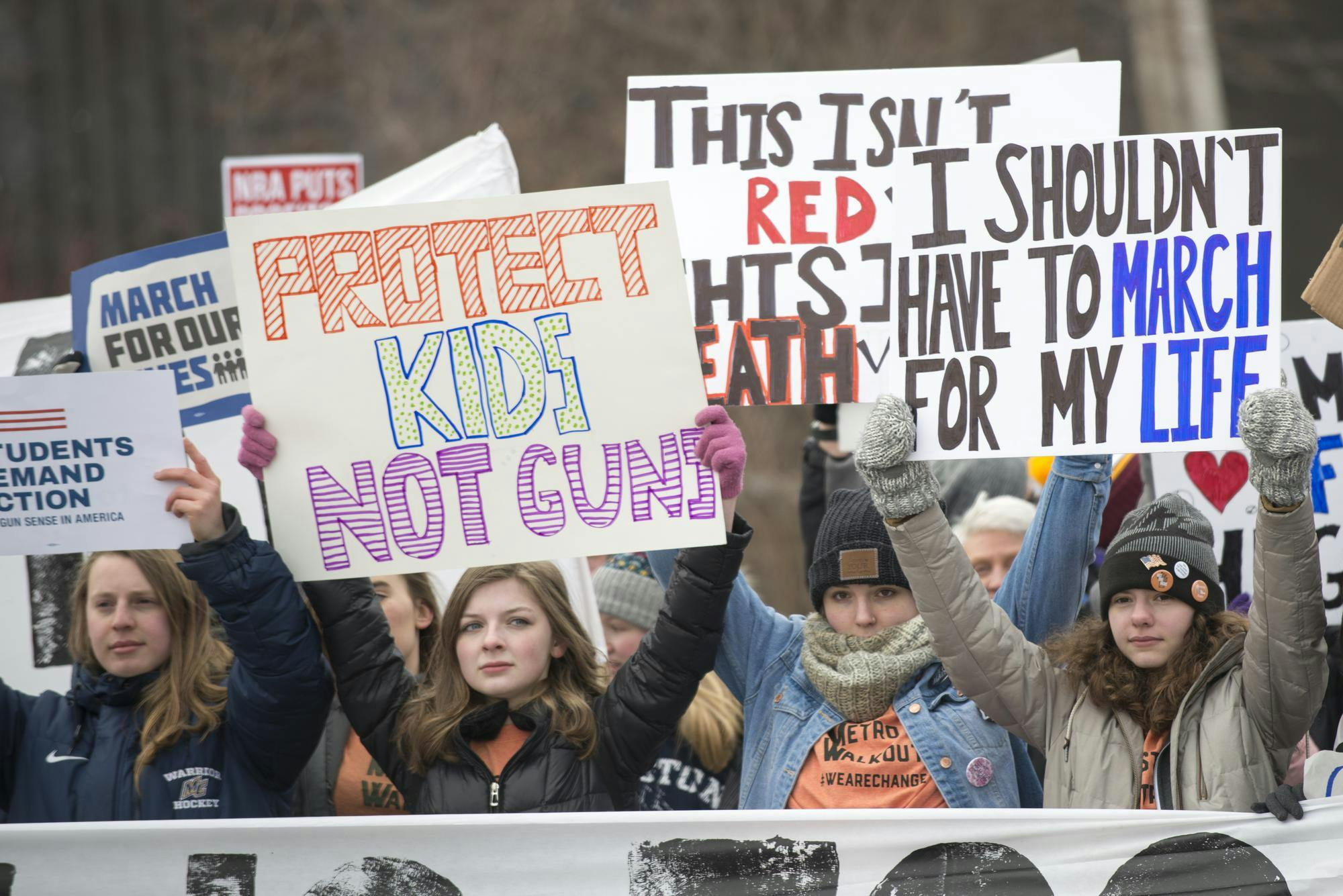Editor’s note: The following is adapted from a nationwide op-ed, meant to be published today at over 50 student papers across the country, unifying student voices to organize together toward an end to gun violence and demonstrating shared concern about gun violence that exists on college campuses. The nationwide op-ed was signed by 144 student leaders representing 90 groups across the nation. The op-ed begins after the first two paragraphs.
Tufts has no shortage of leaders, priding itself on a campus with an incredible array of civic life. Our students are no strangers to discourse, organization and advocacy, regardless of their backgrounds or academic interests. Just as students work for the common cause of creating a diverse campus life via student organizations and advocacy, gun violence prevention is an issue whose importance we all recognize.
We all carry the human capacity to empathize and organize, as students and community members, to keep ourselves and those around us free of gun violence. Tragedies like the Boston Marathon Bombing and the Bard College at Simon’s Rock shooting have changed the consciousness of local and statewide communities. Though Massachusetts has been at the forefront of gun control policy, the fight continues nationwide and with all of us.
From the beginnings of our educational journeys, students are taught to love a country that values guns over our lives. Some of us hear the sound of gunfire when we watch fireworks on the fourth of July, or when we watch a drumline performance at halftime. But all of us have barricaded a classroom door in an active shooter drill and feared that next time, someone will be waiting outside.
By painful necessity, we have grown to become much more than students learning in a classroom — we have shed every last remnant of our childhood innocence. The steady silence of Congress is as deafening as gunfire.
We will not wait for individual trauma to affect us all before we respond together. Our empathy is not that brittle. Our generation responds to shootings by bearing witness and sharing solidarity like none other. We text each other our last thoughts and we cry on each others’ shoulders and we mourn with each other at vigils. We convene in classrooms and we congregate in churches and we deliberate in dining halls. We’re staunch and we’re stubborn and we’re steadfast.
We believe that our country can love us back. There are bullet-shaped holes in our hearts, but our spirits are unbreakable.
History has taught us that when injustice calls students to act, we shape the moral arc of this country. Students in the Civil Rights Movement shared their stories through protest, creating the Student Nonviolent Coordinating Committee that organized Freedom Rides, sit-ins and marches. In demanding freedom from racial violence, this group’s activism became woven into American history. Students across America organized teach-ins during the Vietnam War, using community and empathy to protest the war. Their work, in demanding freedom from conscription and taxpayer-funded violence, is intertwined with the American story.
This fall, UNC Chapel Hill students’ text exchanges during the Aug. 28 shooting reached the hands of the president. The nation read the desperate words of our wounded community, as we organized support, rallied and got thrown out of the North Carolina General Assembly. We demanded freedom from gun violence, just as we have in Parkland and Sandy Hook and MSU and UNLV.
For more than 360,000 of us since Columbine, the toll of bearing witness, of losing our classmates and friends and of succumbing to the cursed emotional vocabulary of survivorship, have become our American story.
Yes, it is not fair that we must rise up against problems that we did not create, but the organizers of past student movements know from lived experience that young people decide the future of the country. After student sit-ins at Greensboro, Congress passed unprecedented civil rights legislation. Student organizing was vital as Congress withdrew from the Vietnam War. In recent years, the country watched student survivors march against gun violence, drawing national attention that led to the White House creating the National Office of Gun Violence Prevention on Sept. 22, 2023.
So as students and young people alike, we should know our words don’t end on this page; we will channel them into change.
We invite you to join this generation’s community of organizers, all of us united in demanding a future free of gun violence. We understand the gravity of this commitment because it’s not simply our lives we protect with prose and protest. It is our way of life itself.
We will not allow America to be painted in a new layer of blood. We will not allow politicians to gamble our lives for NRA money. And most of all, politicians will not have the shallow privilege of reading another front-cover op-ed by students on their knees, begging them to do their jobs — we do not need a permission slip to defend our freedoms. They will instead contend with the reality that by uniting with each other and among parents, educators and communities, our demands become undeniable.
We feel intense anger and frustration and sadness, and in its wake, we search for reaffirmations of our empathy — the remarkable human capacity to take on a tiny part of someone else’s suffering. We rediscover this fulfillment in our organizing, in our community, in not just moving away from the unbearable pain of our yesterday but in moving toward an unrelenting hope for our tomorrow.
Our generation dares politicians to look us in the eye and tell us they’re too afraid to try.






